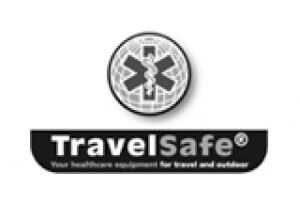Search for travel destination
Stay healthy when you travel or go on holiday
Search for travel destination

Frequently Asked Questions
Click on the question for the answer.
- Which vaccinations do I need for which countries?
- The website provides advice on each country: click here. Please bear in mind though that this advice is general. You will receive personal advice on the basis of your health, any medication you take, the length of your trip and so on during the consultation at one of our centres.
- Should I still be vaccinated if vaccinations are not required?
- Yes. Travel and information brochures often state that vaccinations are 'not compulsory'. 'Not compulsory' means that vaccinations are not a requirement for entry into the country in question. However, this does not mean that you are not at risk of contracting the diseases in these countries. So vaccinations are certainly recommended.
- Can I still be vaccinated if I've booked a last-minute trip?
- Yes, it's never too late to be vaccinated. Many of the vaccinations offer immediate protection. So it is always important when booking a last-minute trip to book an appointment for vaccinations/travel advice, too.
- Do I need vaccinations if I only intend to stay at a resort?
- Yes. You are also at risk of contracting certain diseases at resorts. So get vaccinated, even if you intend to go no further than the resort.
- How far in advance should I get vaccinated?
- It's best to make an appointment for the vaccinations six to eight weeks before your departure date. Many vaccinations can still be given shortly before departure, so it's also wise to make an appointment for the necessary vaccinations if you've booked a last-minute.
- Can I have vaccinations if I have a fever?
- It's best to postpone the appointment until your fever has passed.
- Can the vaccinations be combined with other medication?
- This depends on the type of medication you are taking. Most types of medication can be combined with the vaccinations. Your medication usage will be discussed during your consultation.
- What do the vaccinations cost?
- This depends on the vaccine. Click here to view our pricelist. Please note that the prices are per vaccination, which means that you will be required to pay this amount again if you have to return for repeat vaccinations.
- Can I visit Travel Doctor in the evening or at the weekend?
- This depends on the centre. It is best to call your chosen centre to find out more about this. Click here for the telephone numbers of all the centres.
- How do I make an appointment at Travel Doctor?
- You can make an appointment on the website by clicking on the 'make an appointment' button click here or you can call one of our centres. The telephone numbers can also be found on this website: click here.
- What can I expect during an appointment for travel advice and vaccinations?
- A time will be booked for you by telephone or via the internet. We will discuss a number of matters with you during your appointment, such as your travel itinerary, medication usage and any health problems you might have. Next, we will look at exactly what you need for the country you're travelling to. The vaccinations can then be administered there and then during your visit. If you have been vaccinated previously, it is likely that you have proof of vaccination (a little yellow booklet). It is a good idea to take this with you.
- Will I experience any side effects from the vaccinations?
- Side effects occur occasionally. Usually, these are limited to achy muscles and a slight redness at the injection site. Flu-like symptoms can occur, but they are not common. If you do experience side effects, they could continue for one to two days.
- Will I be able to work and do sport after a vaccination?
- You will be able to continue all your activities as normal after being vaccinated.
- What can I do to avoid getting sick while travelling?
- It is important to take good precautionary measures, in order to minimise your chances of encountering problems while travelling. It is important therefore that you acquire all the necessary vaccinations and any other necessities such as malaria tablets, DEET and so on. It is important to take any medication you require properly while travelling.
Important tips:
• Only drink bottled water or boil water before drinking it. The same applies to milk. Do not accept bottles that have already been opened when eating at restaurants.
• Bear in mind that ice cubes are made from water and that salads are washed in water.
• Eat as little fish and shellfish as possible.
• Do not eat raw meat and check that any meat you eat has been well cooked.
• Do not leave food outside the refrigerator for too long and do not eat food that is kept for too long.
• Only consume ice cream that is packaged; no home-made ice cream.
• Ask whether the swimming water is safe.
• Wear water shoes when entering the water.
• Do not walk barefoot.
• Use a good sunscreen with a high protection factor, even if you sit in the shade a lot.
• Wear sun-protective clothing.
• Drink enough (clean) water. - Which diseases can I be vaccinated against?
- • DTP (diphtheria, tetanus and polio)
• Typhoid fever
• Hepatitis A (jaundice)
• Hepatitis B
• Meningitis (infection of the meninges)
• Rabies
• Yellow fever
• TBE (tick encephalitis) - Will my insurance company refund the cost of vaccinations?
- This depends on your insurance company and the terms and conditions of your policy. Check here to see which costs your insurance company refunds.
- How do I submit the receipt to my insurance company?
- We will give you a receipt, which you can send to your insurance company together with your claim form. If you are covered for the vaccinations, the amount will be refunded into your bank account.
- Can I buy DEET, ORS etc. from Travel Doctor?
- Yes, most centres stock various products such as DEET, ORS, diacure, mosquito nets, first-aid kits and so on.
- How long will the vaccinations protect me for?
- This depends on the type of vaccination. Some vaccinations have to be repeated in order to provide long-term protection.
Yellow fever 10 years from 1 vaccination. Hepatitis A 1 year from 1 vaccination and 25 years after the 2nd vaccination. DTP protection for 10 years. If you were born before 1950, you will need to have 3 DTP vaccinations. Typhoid fever protection for 3 years. Hepatitis B 3 vaccinations required for protection for at least 10 years. - Can children and babies be vaccinated as well?
- Yes, children can be vaccinated from the age of one. The DTaP/IPV (diphtheria, whooping cough, tetanus and polio) vaccination is part of the RVP (state vaccination programme) which runs until the age of 18. Unfortunately, the RVP does not include all the vaccinations that are necessary for travel, so it is important to make an appointment for children to be vaccinated as well.
- Is it safe to be vaccinated during pregnancy?
- This depends on the vaccination you need. Most vaccines can be administered, but the yellow fever vaccine for example may not. There is always a higher risk of contracting diseases when travelling to tropical and sub-tropical countries. You need to ask yourself whether you are willing to take this risk or whether you would be better off postponing your trip.
- Do I need to be vaccinated if I've already had the disease in question?
- That depends on which disease you have had. If you have had hepatitis A, for example, those antibodies remain present in your blood, which means that you do not need to be vaccinated against hepatitis A.
- I have a fear of needles. What can I do?
- We can prescribe anti-anxiety medication, which can be taken beforehand. We can also apply anaesthetic cream to the injection site.
- Is it necessary to take malaria tablets? They have so many side effects.
- Yes, it is certainly important to take malaria tablets if you are going to an area where malaria is rife. Nowadays, there are many drugs on the market that have very few side effects.









